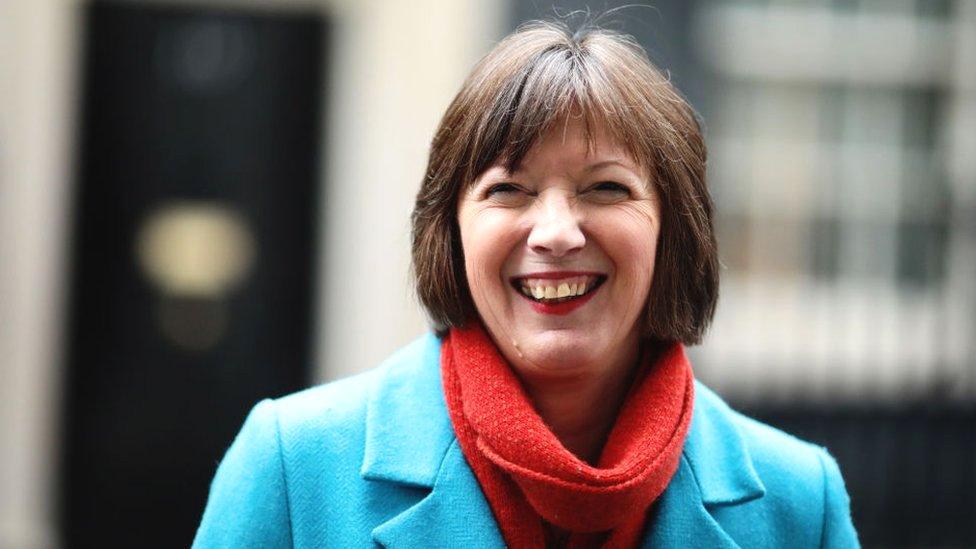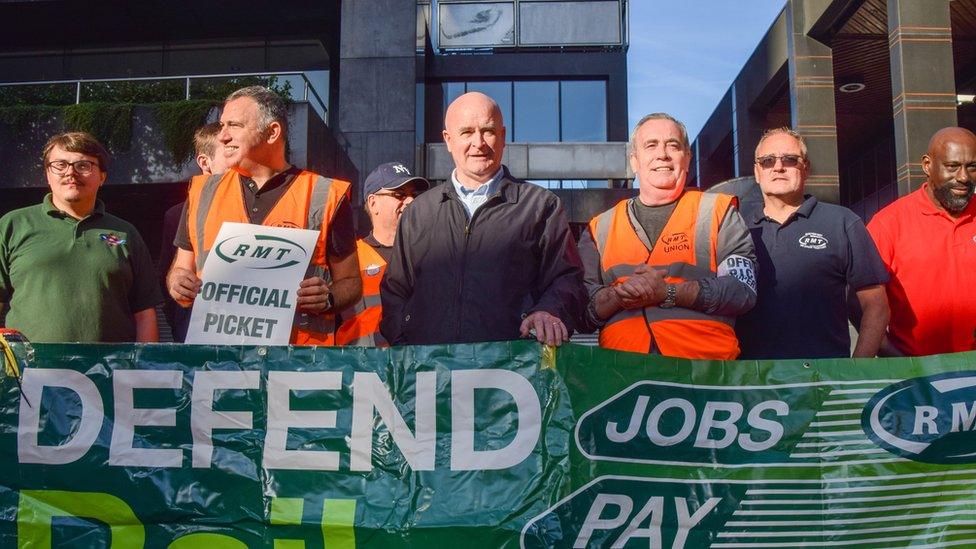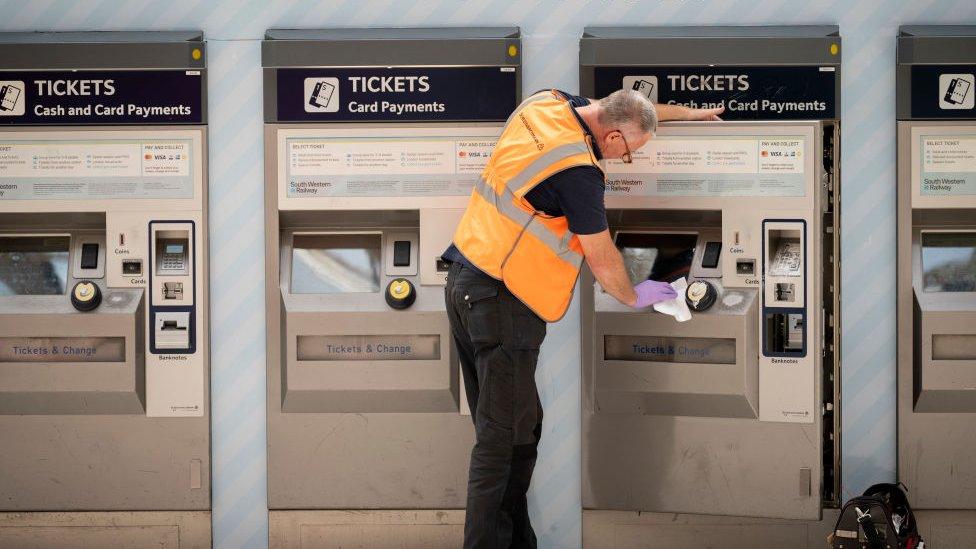Unions will fight government over workers' rights, vows TUC
- Published
- comments
In her final speech as TUC leader, Frances O Grady criticised government policies over workers' rights.
The unions are ready to take on the government if it attempts to strip away workers' rights, the head of the Trades Union Congress has said.
The government has promised to change the rules on taking strike action.
TUC general secretary Frances O'Grady said it as "a cynical move to distract from the chaos they have caused".
But a government spokesperson said it wanted to ensure the public did not pay the price for "disproportionate strike action".
Ms O'Grady said the TUC had taken legal counsel over whether the government's plans to change rules governing industrial action breached the law.
"Read my lips: We will see you in court!" she told the TUC annual conference in Brighton.
Ms O'Grady was giving her final speech as leader of the TUC - the umbrella movement for the UK's major unions. She is stepping down after almost a decade in the post.
She used the opportunity to highlight the "longest wage squeeze since Napoleonic times" which she said had left UK families at breaking point,
Workers were facing two decades with no real wage growth, once inflation was taken into account, she said.
The union body is warning that the anger felt by workers over falling real wages is likely to lead to hundreds of thousands joining the picket line this winter. Nurses, doctors and teachers are already being balloted on action.
This week at the TUC conference unions are expected to vote in favour of co-ordinating any strikes.
There has already been a wave of strike action affecting postal, communication and rail services. Barristers and dockworkers have also been on strike.
The government has said it will do what it can to minimise disruption, and said it is confident its proposals are compliant with the UK's domestic and international legal obligations..
It said it "makes no apology for taking action so that essential services are run as effectively as possible, ensuring the British public don't have to pay the price for disproportionate strike action".
Under Prime Minister Liz Truss, the government has proposed requiring unions to put pay offers to a member vote before calling a strike. It also aims to introduce legislation to ensure transport companies maintain a minimum level of service during industrial action.
The government said strike action should be the result of a positive decision by union members and that those who do not support strike actions should be able to continue working through any industrial dispute.
New rules on allowing employers to hire agency workers during strikes have already been passed.
Ms O'Grady defended the right of workers to strike at a time when wages were failing to keep pace with prices.
"Just when the citizens of this country are in despair, when key-workers' kids are going to school with holes in their shoes, and young families are worried sick about taking on a mortgage - Liz Truss' top priority is to make it harder for workers to win better pay.
"If ministers cross the road to pick a fight with us then we will meet them halfway," she said.
Ms O'Grady also told the conference the Business Secretary Jacob Rees Mogg wanted worker's rights derived from EU laws to be "stripped from the statute book" including "holiday pay, time off for mums and dads and limits on safe working hours".
Falling pay
The TUC estimates that real wages - which take rising prices into account - will not return to their 2008 level until 2028.
That would mean a further loss in real terms of £4000, on average over the next three years, as a result of price rises outstripping wage growth. The TUC used Bank of England and Office for National Statistics data to make the calculations.
Public sector staff were quitting "in droves" because of poor pay rates, Ms O'Grady added.
In response, the government said it was "determined to make work pay" and said it had already increased the minimum wage.
A government spokesperson said it was supporting people with bills due to the impact of rising costs.
"In the long-term, we are committed to building a high-skilled, high-wage economy that delivers on our ambition to make the UK the best place in the world to work," they added.
In an interview ahead of the conference Ms O'Grady said there was a "moral and economic argument for making sure people's pay packets at least keep up with inflation".
"The economy has become skewed," she told the BBC's Today programme.
"Shareholder dividends have been rising much, much faster while real pay has been falling.
"We need people to have money in their pockets to spend in pubs local shops to keep our High Streets open."
- Published1 August 2023

- Published12 April 2022

- Published18 October 2022

- Published31 January 2023

- Published23 June 2022

- Published14 October 2022

- Published14 October 2022

- Published22 September 2022

- Published24 August 2022
